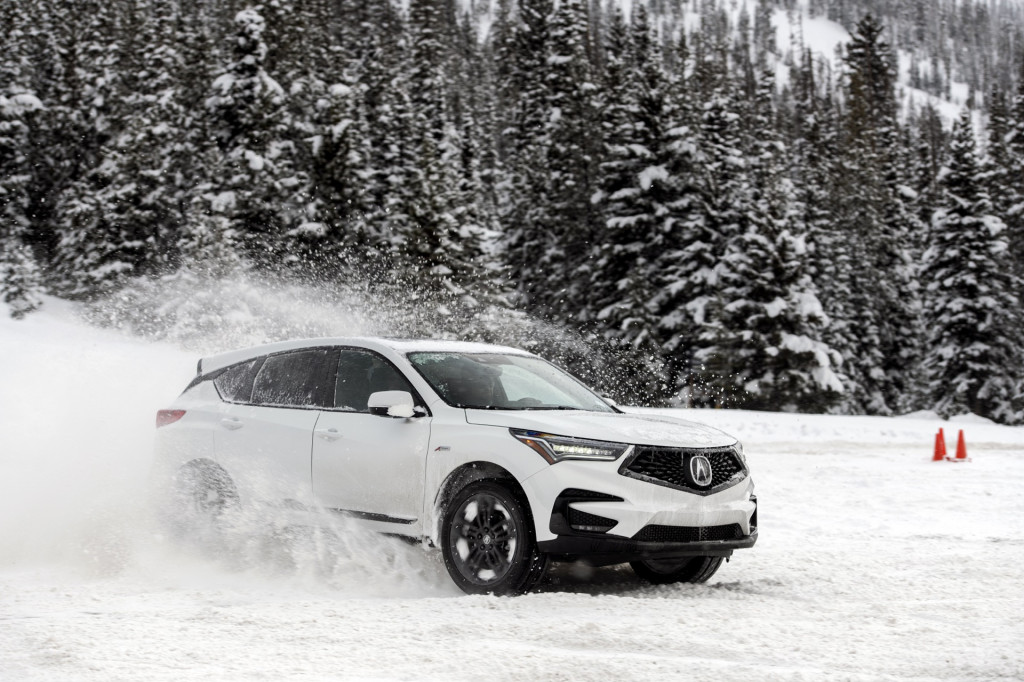All vehicles become less efficient in cold weather. In a recent study, researchers in freezing Finland focused on whether engine block heaters could help increase efficiency in internal-combustion vehicles.
Conducted by the University of Eastern Finland and Tampere University, the study, published in the journal Applied Energy, produced some complex results. Vehicles were driven on the same route after a cold start, after pre-heating with an engine block heater, and with the engine already warmed up by driving.
The route represented a typical commute, with temperatures dropping as low as -18.4 degrees Fahrenheit. Engines only reached their optimal operating temperatures after 19 minutes of driving after a cold start in these conditions, according to the study.
2020 Honda CR-V kicks up snow at the Winter Driving Encounter in Winter Park, CO.
The study found that engine preheaters brought a 10-20% reduction in fuel consumption during the initial warmup period, versus a cold start, but it didn’t help the engine warm to its most efficient operating temperature any quicker. Also, there was no discernible impact on particulate emissions from diesel engines. Furthermore, the study didn’t account for fuel or electricity use to run engine block heaters, which could negate gains in mpg.
“In summary, using preheating solely for the purpose of improving fuel economy and reducing emissions does not find support in actual cold-temperature driving conditions,” researchers said in a statement. “However, in different driving scenarios and considering the entire lifespan of vehicles, emissions reduction might lead to somewhat different conclusions.”
Some engine block heaters run on fossil fuel, but many are electric and plug into an external outlet. Ironically, the proliferation of EVs and home charging might make it a little easier to find a plug near a garage or parking spot.

2020 Acura RDX A-Spec kicks up snow at the Winter Driving Encounter in Winter Park, CO.
Both EVs and gasoline vehicles lose range in the extreme cold. EVs just lose more. Unlike internal combustion, electric powertrains are just as efficient in cold weather—but the issue is how much energy needs to go to heating the battery pack and cabin. Internal-combustion engines generate enough excess heat once warmed up to stay at a good operating temperature, while providing a heat source for the cabin.
Most EVs incorporate a low-level heater though to prevent the electrolyte from freezing, which has proven robust enough for Canadian winters. Heat pumps in the Tesla Model Y and other EVs help work around that as well.
